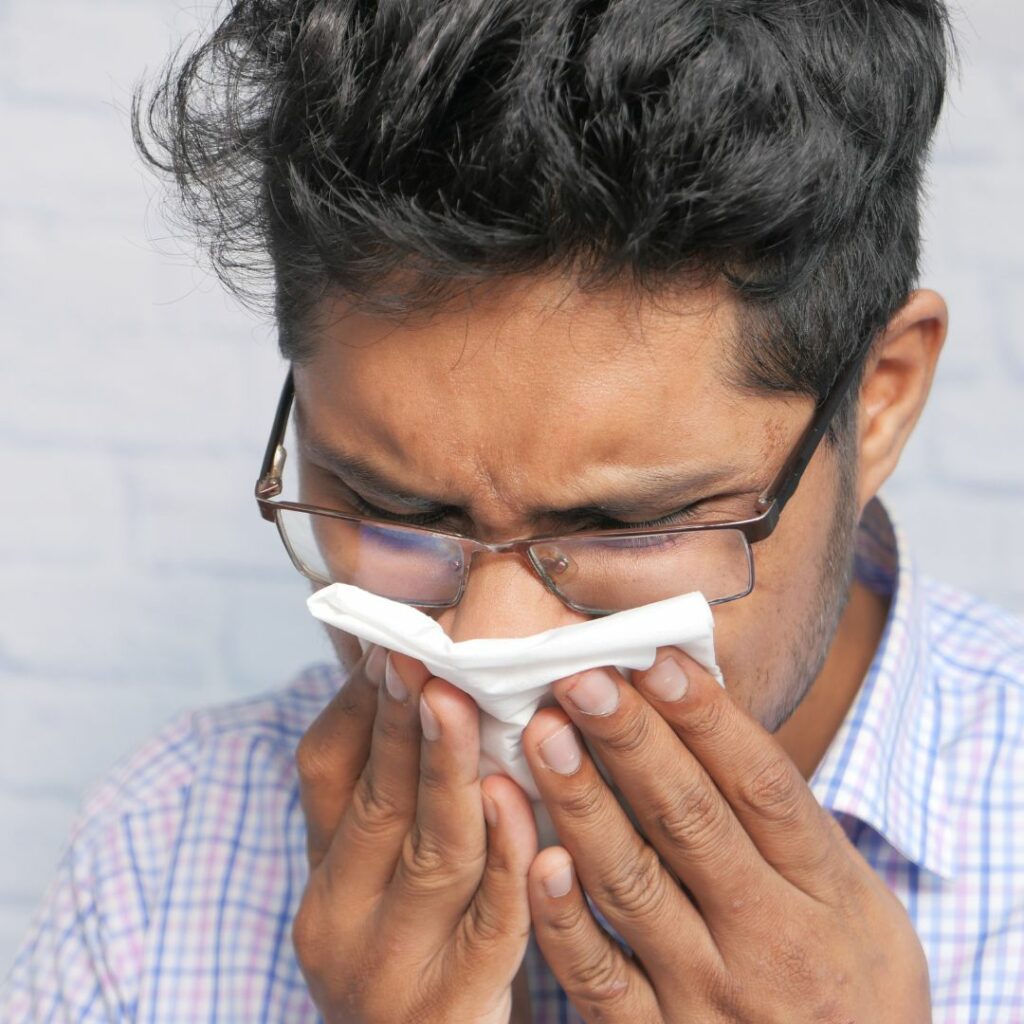Allen Park: (313) 381-8787
Southfield: (248) 304-7772


By Patricia Jul 20, 2022

Ahchoo! The first sneeze. Could it be your allergies flaring up? Or are you getting sick with a virus like the common cold? While many people experience both allergies and viruses throughout their lifetime, distinguishing between the two can be quite difficult.
At the Detriot Sinus Center, we meet many patients who experience major sinus issues, such as chronic sinus pain, due to sinus infections, allergies, and more! Each case presents its own set of issues to address, but our sinus experts are dedicated to improving the lives of our patients by offering innovative sinus surgeries and allergy treatments. Before you seek a sinus procedure, it is important to distinguish if you are experiencing allergy issues or are suffering from a viral infection like a cold. Keep reading to learn more about the key differences between these two, including symptoms and available treatments, and contact our team today to consult with an allergy specialist.

Colds are an illness that affects your respiratory system due to a virus, or a small living infectious agent. The virus then attacks your immune system, which creates a counter-attack causing symptoms like sneezing or a cough. Cold viruses are contagious and can be spread to other individuals through contact and germ transfer.

Allergies are caused by an overreactive immune system. For example, in the spring, when pollen is predominant, your body may sense the pollen molecules as germs, releasing chemicals such as histamine to counteract the “foreign contaminant.” This overreaction is what causes the discomfort associated with allergies. While not contagious, some allergies can be genetically inherited.

Understanding the key differences between cold viruses and allergies is critical for seeking treatments such as cough syrup or allergy treatments.

Treatment Methods
Treatment options differ depending on if you have a cold or allergy, as well as the severity of your symptoms. To this day, there is still no cure for the common cold, instead, treatment is considered more supportive care with instructions to get lots of rest, drink plenty of fluids, and use saline spray and a humidifier to decrease congestion. Doctors may prescribe over-the-counter cold medications to help ease the discomfort.
Allergies require the assistance of an allergy specialist to thoroughly test and diagnose the root cause of the triggered response. Working with an allergy specialist can help provide you with insight on how best to navigate and treat your allergies. Some treatments may include decongestants, allergy medications, and other ENT procedures such as advanced sinusitis treatments.
After reading through this article, if you believe that you are experiencing allergies, contact our team at the Detriot Sinus Center for a consultation. With state-of-the-art tests and technologies, we can help identify the root cause of your allergies and provide innovative solutions. Work with an allergy expert today!